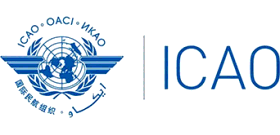 Unruly Passenger Incidents Surge in Nigeria: Why Safety and Professionalism Matter More Than Ever
Unruly Passenger Incidents Surge in Nigeria: Why Safety and Professionalism Matter More Than Ever
Across the globe, airports are grappling with a marked increase in unruly passenger behaviour, a trend that has not spared Nigeria’s aviation sector. This rise in disruptive incidents is causing operational headaches, threatening the safety of both passengers and crew, and placing additional pressure on aviation security teams. For Africa’s aviation professionals, understanding the roots and repercussions of this phenomenon is crucial—not only for maintaining order but also for safeguarding the reputation and efficiency of the continent’s air transport industry.
Air travel is governed by a complex web of strict protocols designed to ensure the safety and well-being of everyone involved—from passengers and crew to ground staff. When these protocols are disregarded, the consequences can be far-reaching. Delays, flight diversions, and even more serious safety risks can arise from a single act of aggression or non-compliance. Industry experts stress that every passenger has both a legal and moral duty to follow safety instructions and to behave with courtesy and restraint at all times. This is not just a matter of etiquette; it is a fundamental requirement for the smooth functioning of aviation operations worldwide [[1]](https://tribuneonlineng.com/calming-in-flight-fracas-with-professionalism/).
Recent events at Nigeria’s Murtala Muhammed Airport Terminal 2 (MMA2) have brought these issues into sharp focus. In a notable incident, a female passenger became unruly on the tarmac following an onboard dispute. The response from Aviation Security (AVSEC) personnel was exemplary: officers acted swiftly and with remarkable restraint, avoiding any physical confrontation until a female officer could intervene in accordance with established protocol. Even when the passenger’s aggression escalated—she was seen grabbing a male AVSEC officer by the necktie on the transfer bus—the officer maintained his composure, refusing to retaliate and instead demonstrating the highest standards of professionalism.
This episode underscores the importance of rigorous training for security personnel, particularly in the areas of de-escalation and adherence to procedure. Such training is vital for ensuring that incidents are managed safely and effectively, without exacerbating tensions or risking harm to anyone involved. However, the incident also highlights a broader issue: the urgent need for ongoing public education about the responsibilities of air travel. Many passengers remain unaware that unruly behaviour is not simply a personal outburst—it can have serious legal consequences, endanger others, and disrupt the entire aviation ecosystem.
Globally, the aviation industry has witnessed a surge in disruptive passenger behaviour, ranging from verbal abuse to physical altercations. These incidents not only jeopardise the safety and satisfaction of travellers but also erode public trust in the industry’s ability to maintain order and security. In Nigeria, the visibility of such cases has increased, prompting calls for greater enforcement of discipline and more robust security measures to protect both passengers and crew.
International bodies such as the International Civil Aviation Organization (ICAO) and the International Air Transport Association (IATA) have responded by urging governments and airlines to step up their efforts. This includes prosecuting offenders under relevant laws, increasing public awareness campaigns, and ensuring that all stakeholders understand the consequences of disruptive behaviour. In some jurisdictions, penalties for unruly passengers can be severe, including hefty fines, criminal charges, and even lifetime bans from certain airlines.
For Nigeria and the wider African aviation sector, these developments present both challenges and opportunities. On one hand, the rise in unruly incidents threatens to undermine the progress made in recent years toward building a safer, more reliable air transport system. On the other, it offers a chance to reinforce the importance of professionalism, discipline, and mutual respect within the industry. By investing in better training for security personnel and launching targeted public awareness campaigns, African airports can set new standards for safety and service excellence.
It is also essential for airport authorities and airlines to foster a culture of shared responsibility. While security teams are trained to protect and serve, the ultimate responsibility for a safe and respectful travel environment rests with everyone who uses the airport. Passengers must be made aware that their actions have consequences—not just for themselves, but for the entire community of travellers and workers who depend on the smooth operation of the aviation system.
Looking ahead, the African aviation industry must remain vigilant and proactive. As air travel continues to rebound and expand across the continent, the potential for disruptive incidents will only grow. By prioritising education, enforcement, and exemplary conduct, Nigeria and its neighbours can ensure that their airports remain safe, welcoming, and efficient gateways to the world. The lessons learned from recent incidents should serve as a catalyst for positive change, inspiring all stakeholders to work together in pursuit of a more secure and harmonious future for African aviation.
